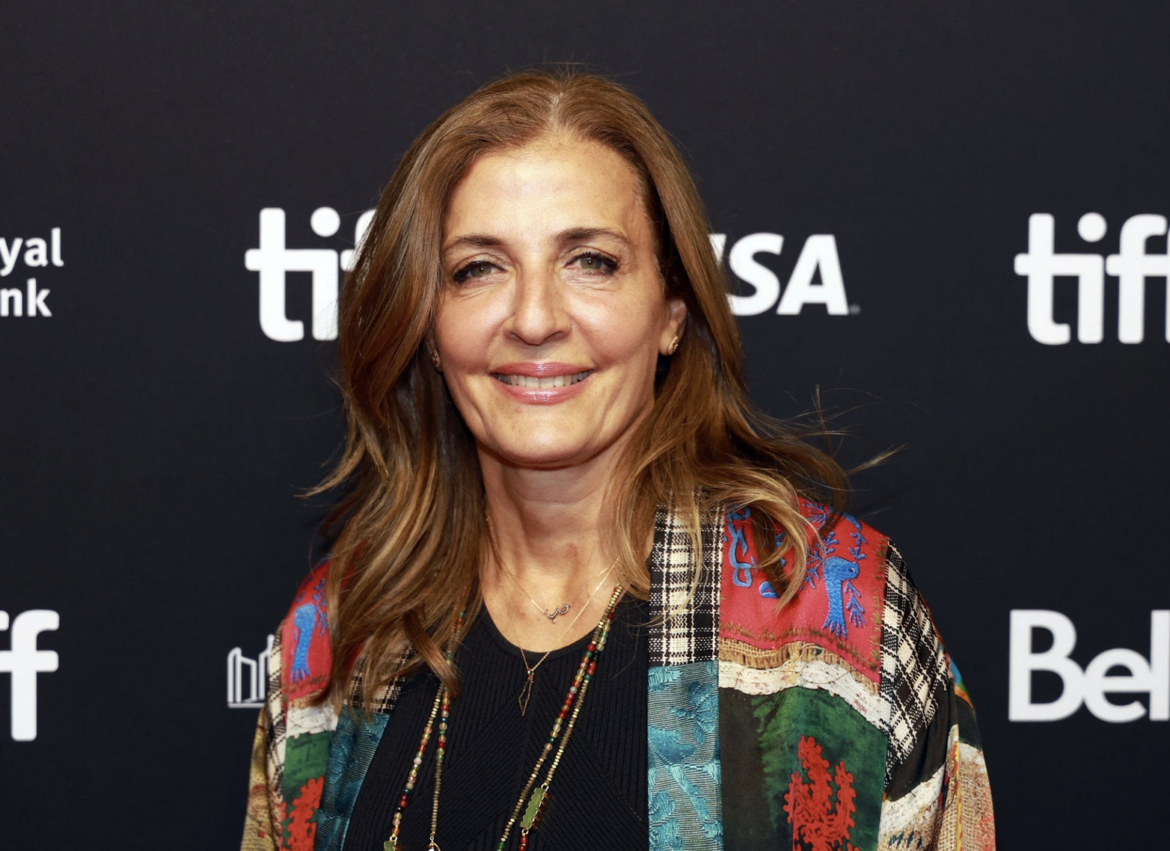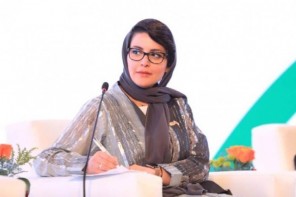Our innate compassion drives us to uplift those whose stories are often overlooked. Globally, human rights have become a powerful force and a universally cherished ideal. In people like Sawsan Asfari, we find inspiration. Her resilience, rooted in her British-Lebanese heritage amidst the complexities of the Middle East, speaks volumes. Asfari’s strength, drawn from her Palestinian mother and Lebanese father, is evident. As the Producer and Founder of Cocoon Films, established in 2007, Asfari’s journey epitomes compassion and unwavering dedication. She champions marginalised voices, using her platform to produce socially relevant films that tackle issues of justice and human rights head-on.
Beyond film making, Asfari extends her positive influence to education and civil society. As Co-founder of the Asfari Foundation, she nurtures young minds and fosters critical thinking. Additionally, as executive director of the Galilee Foundation, she empowers the Palestinian community in Israel through educational and cultural initiatives. Through all her endeavors, Sawsan Asfari symbolizes positive transformation, inspiring hope and resilience in countless hearts.
Can you share a pivotal moment or experience from your childhood in Sidon, Lebanon, that significantly shaped your passion for justice and resilience?
In Sidon, my school happened to be close to the Palestinian refugee camp, Ain elhelweh, and often, it would be bombed by Israeli planes, and we would go afterwards to see if we can help. My memories of the terrible conditions of the camp, and the terrible life the refugees had to endure, left its mark on me, and made me want to bring about change.
Your move to London at a young age due to the unrest in Lebanon marked a significant transition in your life. How did this experience influence your commitment to shedding light on the injustices faced by marginalized communities, particularly Palestinians?
In London, as a teenager, I became aware of activism, the power of protests and demonstrations, and also the freedom of speaking out. One of my major activities throughout my teenage years was speaking at Hyde Park Corner, where the question of Palestine /Israel was always an inflammatory subject. As I grew older, the activism was channeled to lobbying in Parliament and working with like-minded people.
With a background in political science and English literature, what led you to transition from traditional activism, such as political lobbying and charity work, to film making as a means to advocate for social change?
After many years of lobbying and activism, we were making slow progress with the wider public, and for people who are not interested in politics or charity work and don’t know much about the conflict, I thought film may be a good way to reach them. So basically, we started the film company not just because of a passion for films, but rather a passion to promote the Palestinian cause through film, and to raise awareness about the injustices that have been done to the Palestinian people.
As a founder of Cocoon Films, what values do you prioritize in your work, and how do you ensure they are reflected in the stories you choose to tell?
The stories we choose have to resonate with me, in terms of the values that I try to promote such as shedding light on marginalized people, or highlighting certain injustices and human rights issues. It could be through documentaries or feature films, but the film has to involve one of these values, even if it’s done in a nuanced way.
Can you discuss the challenges you’ve faced in shedding light on difficult Middle East conflicts and the struggles of Arab individuals, which are often overlooked by mainstream narratives?
The biggest challenge for us when it comes to our kind of difficult subjects, be they political definitely distribution. In the Middle east, the cinemas or broadcasters are either censored, or they tend to censor themselves. And in the west, distribution is always difficult for independent films, especially if they are dealing with thorny issues such as the Palestine/ Israel conflict.
With your production, “Tomorrow’s Freedom”? what message or impact do you hope to convey to audiences, especially regarding the issues addressed in the film?
Tomorrows Freedom is mainly about the Palestinian prisoner Marwan Barghouthi, who is labelled as the Nelson Mandela of Palestine, but it is also about the plight of the Palestinian prisoners and their suffering and the suffering of their families while they are incarcerated. We wanted to highlight the injustice of the Israeli legal system and the conditions that these prisoners are held under.
In navigating the complexities of filming ‘Tomorrow’s Freedom,’ what inspired you to undertake this project? Moreover, could you elaborate on the challenges you faced in bringing Marwan Barghouthi’s story to light and advocating for his release?
Marwan Barghouthi has always been a hero of mine, but when the directors and co-producers on the film, Sophia and Georgia Scott came asking me about Marwan and if I would be interested in producing this documentary, I immediately agreed and that is how we got started. The challenges of the film were that we could not get an interview with Marwan, so we had to use the archive for the only interview done with him, the filmmakers had to be very discreet while filming in Palestine, not bringing their own equipment with them while traveling, as we did not want to draw the attention of the Israeli authorities.
As for bringing the story to light, the biggest challenge was many cinemas and distributors did not want to touch it , deeming it too political. This year, because of the extremely tragic events in Gaza, there has been renewed interest in Palestine, and which leader is able to lead and unite the Palestinian people; there have been several articles written about Barghouti, that he is that leader.
How did you feel when you were awarded for your films like ‘Wajib,’ ‘Salt of the Sea,’ and ‘When I Saw You’? Additionally, what themes do you believe contributed to the success of these award-winning films?
Those films were all co-productions, but when Salt of the Sea won in the “Un certain regard” category in Cannes, and we all went up on stage with Annemarie Jacir the director, we were wearing our kuffiyas, and we felt a great sense of pride for bringing Palestine to the audience.
As a co-founder of the Asfari Foundation, how do you envision empowering young people through education and research, and how does this tie into your broader advocacy efforts?
At the Asfari Foundation, we have a strong conviction in the power of education to empower the young people. Through supporting the civil society organizations with grants for organizational development and leadership skills and advocacy, we hope we are preparing them to be leaders in their own communities and to advocate for better systems in our countries. Countries develop best when there is a strong infrastructure of civil society, that advocates with governments to have better accountability and processes. We have great faith in the youth of the Arab world, and that a strong civil society structure is what keeps a nation strong.
Can you share a particularly memorable or challenging experience from your journey as a filmmaker that has had a profound impact on you personally or professionally?
Independent film making is challenging in itself, and Palestinian ones even more so. Though one instance comes to mind, where I was quite taken aback at the ignorance that can exist, is when we were pitching a film set in Palestine that showed the occupation and the challenging conditions that people have to endure, and though they liked the script, they thought it was too “unrealistic” as Israel is a democracy, and that would never happen! that was quite a shocking moment for me!
Beyond film making, you’re also involved in educational charities and advocate for Palestinian rights. How do these initiatives complement your work in film production, and what impact do you hope to achieve through them?
I love the fact that sometimes my film projects can benefit my charity work. For example, we just had a screening of LYD, a documentary about Lyd (a city in Israel now) which was quite informative. That was done as a special charity fundraiser for The Galilee Foundation, which is an educational foundation that supports Palestinians in the West Bank and Israel.
Looking ahead, what are your aspirations for the future of Cocoon Films and your continued involvement in advocating for justice and tolerance through film making?
I hope to continue to be able to produce films that can resonate with audience and that hopefully will have some impact to bring about change. It is also important to tell our narrative and our stories, as Arabs are not always favorably depicted in the international world of cinema.
How do you believe storytelling can serve as a powerful tool for amplifying the voices of marginalized communities and effecting positive social change in the world?
I think it is not enough to have a message in the film, it is important to have a good film that people will want to see, and through that, you can reach your audience. Films can give a voice to those who are voiceless through personalizing their stories. For example, Tomorrows Freedom had an interview with CNN, and as a result, millions of people got to hear about it, and now they will know about Marwan Barghouti and the plight of the Palestinian prisoners, and hopefully advocate for them. Another film which we premiered at The Toronto Film Festival, is THE TEACHER, directed by Farah Nabulsi, and it is inspired by real events in Palestine, and though it is a feature film, it is very close to reality. Hopefully that will make people aware about the harsh and unjust conditions that the Palestinians have to endure. Storytelling also helps the “other side” to humanize the other, and hopefully that will bring about better understanding amongst people.
Text by Suna Ahmed




